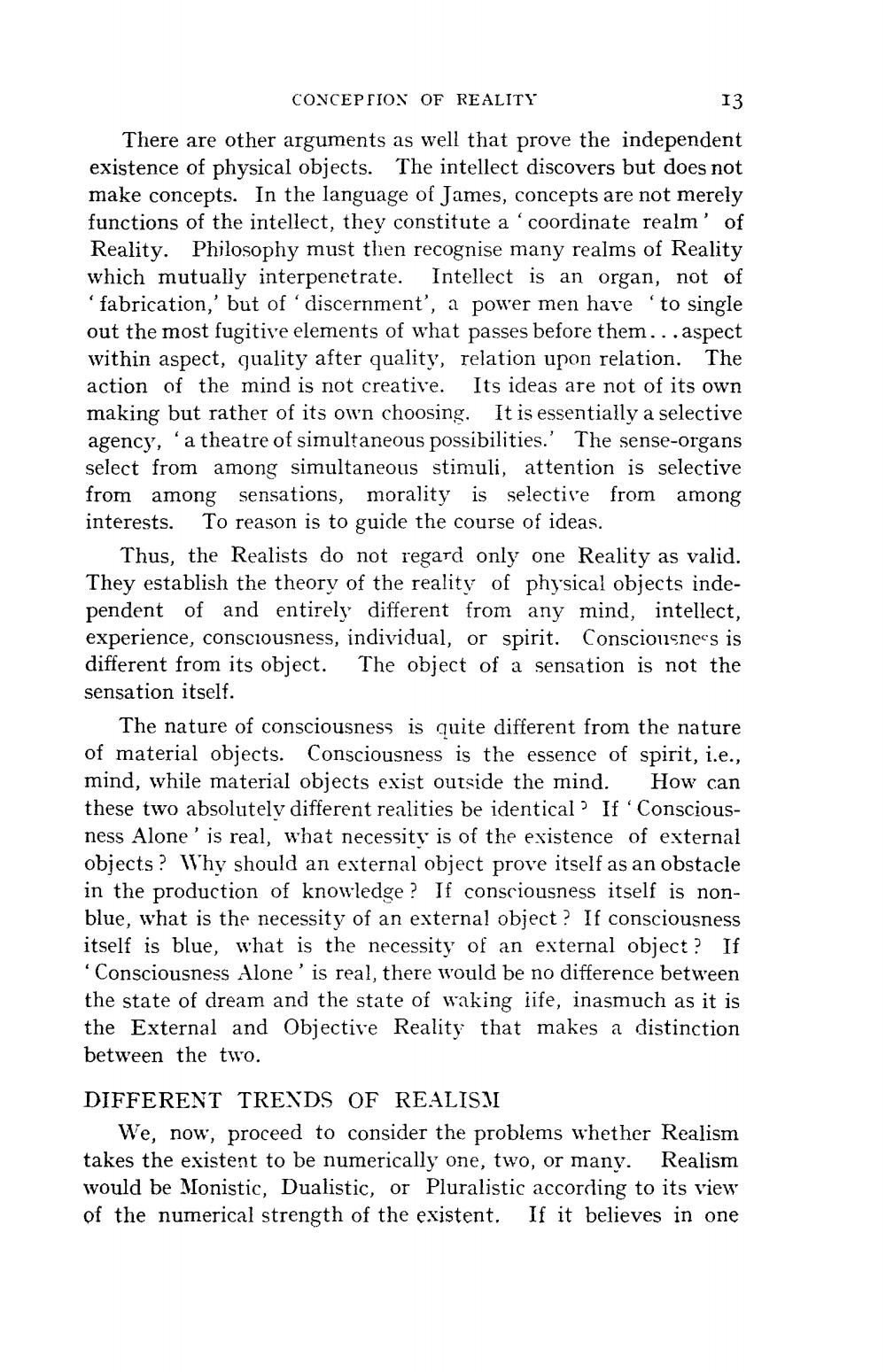________________
CONCEPTION OF REALITY
13
There are other arguments as well that prove the independent existence of physical objects. The intellect discovers but does not make concepts. In the language of James, concepts are not merely functions of the intellect, they constitute a 'coordinate realm of Reality. Philosophy must then recognise many realms of Reality which mutually interpenetrate. Intellect is an organ, not of 'fabrication,' but of 'discernment', a power men have to single out the most fugitive elements of what passes before them... aspect within aspect, quality after quality, relation upon relation. The action of the mind is not creative. Its ideas are not of its own making but rather of its own choosing. It is essentially a selective agency, 'a theatre of simultaneous possibilities. The sense-organs select from among simultaneous stimuli, attention is selective from among sensations, morality is selective from among interests. To reason is to guide the course of ideas.
Thus, the Realists do not regard only one Reality as valid. They establish the theory of the reality of physical objects independent of and entirely different from any mind, intellect, experience, consciousness, individual, or spirit. Consciousness is different from its object. The object of a sensation is not the sensation itself.
The nature of consciousness is quite different from the nature of material objects. Consciousness is the essence of spirit, i.e., mind, while material objects exist outside the mind. How can these two absolutely different realities be identical? If 'Consciousness Alone' is real, what necessity is of the existence of external objects? Why should an external object prove itself as an obstacle in the production of knowledge? If conse blue, what is the necessity of an external object? If consciousness itself is blue, what is the necessity of an external object? If 'Consciousness Alone' is real, there would be no difference between the state of dream and the state of waking iife, inasmuch as it is the External and Objective Reality that makes a distinction between the two.
DIFFERENT TRENDS OF REALISM
We, now, proceed to consider the problems whether Realism takes the existent to be numerically one, two, or many. Realism would be Monistic, Dualistic, or Pluralistic according to its view of the numerical strength of the existent. If it believes in one




